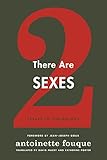There Are Two Sexes : Essays in Feminology / Antoinette Fouque; ed. by Sylvina Boissonnas.
Material type: TextPublisher: New York, NY : Columbia University Press, [2015]Copyright date: ©2015Description: 1 online resource (352 p.)Content type:
TextPublisher: New York, NY : Columbia University Press, [2015]Copyright date: ©2015Description: 1 online resource (352 p.)Content type: - 9780231169868
- 9780231538381
- HQ1208 .F6813 2015
- HQ1208 .F6813 2015
- online - DeGruyter
- Issued also in print.
| Item type | Current library | Call number | URL | Status | Notes | Barcode | |
|---|---|---|---|---|---|---|---|
 eBook
eBook
|
Biblioteca "Angelicum" Pont. Univ. S.Tommaso d'Aquino Nuvola online | online - DeGruyter (Browse shelf(Opens below)) | Online access | Not for loan (Accesso limitato) | Accesso per gli utenti autorizzati / Access for authorized users | (dgr)9780231538381 |
Frontmatter -- Contents -- Foreword -- Preface to the First Edition -- Preface to the Second Edition -- Acknowledgments -- Note on the Translation -- 1. Our Movement is Irreversible -- 2. Women in Movements-Yesterday, Today, Tomorrow -- 3. There Are Two Sexes -- 4. Does Psychoanalysis Have an Answer for Women? -- 5. The Plague of Misogyny -- 6. And If We Were to Speak of Women's Powerlessness? -- 7. "It Is Not Power That Corrupts But Fear": Aung San Suu Kyi -- 8. My Freud, My Father -- 9. From Liberation to Democratization -- 10. Our Editorial Policy is a Poethics -- 11. Dialogue with Isabelle Huppert -- 12. Recognitions -- 13. Wartime Rapes -- 14. Religion, Women, Democracy -- 15. Our Bodies Belong to Us: Dialogue with Taslima Nasrin -- 16. Homage to Serge Leclaire -- 17. How to Democratize Psychoanalysis? -- 18. Democracy and Its Discontents -- 19. Tomorrow, Parity -- 20. Women and Europe -- 21. If This is a Woman -- 22. They're Burning a Woman -- 23. What Is a Woman? -- 24. Gestation for Another, Paradigm of the Gift -- 25. Gravida -- Notes -- Biographical Notes -- Index
restricted access online access with authorization star
http://purl.org/coar/access_right/c_16ec
Antoinette Fouque cofounded the Mouvement de Libération des Femmes (MLF) in France in 1968 and spearheaded its celebrated Psychanalyse et Politique, a research group that informed the cultural and intellectual heart of French feminism. Rather than reject Freud's discoveries on the pretext of their phallocentrism, Fouque sought to enrich his thought by more clearly defining the difference between the sexes and affirming the existence of a female libido. By recognizing women's contribution to humanity, Fouque hoped "uterus envy," which she saw as the mainspring of misogyny, could finally give way to gratitude and by associating procreation with women's liberation she advanced the goal of a parity-based society in which men and women could write a new human contract. The essays, lectures, and dialogues in this volume finally allow English-speaking readers to access the breadth of Fouque's creativity and activism. Touching on issues in history and biography, politics and psychoanalysis, Fouque recounts her experiences running the first women's publishing house in Europe; supporting women under threat, such as Aung San Suu Kyi, Taslima Nasrin, and Nawal El Saadaoui; and serving as deputy in the European Parliament. Her theoretical explorations discuss the ongoing development of feminology, a field she initiated, and, while she celebrates the progress women have made over the past four decades, she also warns against the trends of counterliberation: the feminization of poverty, the persistence of sexual violence, and the rise of religious fundamentalism.
Issued also in print.
Mode of access: Internet via World Wide Web.
In English.
Description based on online resource; title from PDF title page (publisher's Web site, viewed 02. Mrz 2022)


